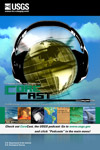USGS CoreCast
It's natural science from the inside out.
USGS Podcasts Home > CoreCast Home Page
Can't see Flash? Install Flash Player.
Next page
|
94
|

Climate change is increasing the mobility of sand dunes in the southwest, posing threats to roadways, infrastructure, human health, cultural practices of the Navajo Nation, and much more. Vegetation on dunes serves as stabilizers, but as the climate warms and precipitation decreases, there is less vegetation growth. USGS scientist Margaret Hiza and intern Leanna Begay discuss their research to understand the dunes' plant diversity and what changes are occurring. (8:47) |
Transcript/Links | |
|
93
|

A roundup of the March 2009 hazard-related events around the world, with some newsworthy tidbits. (3:25) |
Transcript/Links | |
|
92
|

Early this morning, April 06, 2009, a magnitude 6.3 earthquake struck near Rome, Italy. We spoke with Stuart Sipkin, a geophysicist at the USGS National Earthquake Information Center to fill us in on the details. (6:18) |
Transcript/Links | |
|
91
|

USGS scientists continue to monitor streamflow during the historic flooding taking place in Fargo, N.D. This information provides critical information used to estimate flood dangers and helps protect lives and property. Also available in: YouTube (2:15) |
Transcript/Links | |
|
90
|
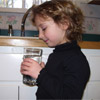
More than 20 percent of private, domestic wells contain at least one contaminant at levels of potential health concern. About 43 million people—or 15 percent of the Nation's population—use drinking water from private wells, which are not regulated by the Federal Safe Drinking Water Act. USGS scientist Leslie Desimone discusses the new study, the contaminants found, and the implications for society. (5:30) |
Transcript/Links | |
|
89
|
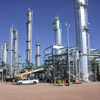
A new method to assess the Nation's potential for storing carbon dioxide in rocks below the earth's surface could help lessen climate change impacts. The injection and storage of liquid carbon dioxide into subsurface rocks is known as geologic carbon sequestration. USGS scientist Robert Burruss discusses this new methodology and how it can help mitigate climate change. (5:44) |
Transcript/Links | |
|
88
|

A roundup of the February 2009 hazard-related events around the world, with some newsworthy tidbits. (5:01) |
Transcript/Links | |
|
87
|

This is the third and final installment of a three-part series on climate change. Slight changes in climate may cause abrupt changes in ecosystems that are not easily reversible. Some of these responses, including insect outbreaks, wildfire, and forest dieback, may adversely affect people as well as ecosystems and their plants and animals. USGS scientist Colleen Charles discusses a new report on the impacts of a warming world on ecosystems. Previous Episodes: Arctic Heats Up More than Other Places (Ep. 82); How Abrupt Can Climate Change Be? (Ep. 84) (6:39) |
Transcript/Links | |
|
86
|
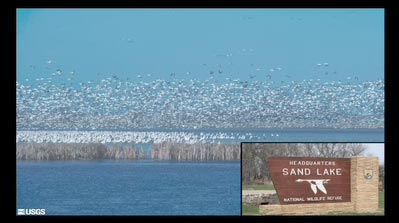
Doppler radar can be used for more than predicting the weather—it can be used to record migrating birds! Also available in: MPG/WMV (27.55 MB) | QuickTime (22.69 MB) | Audio only (7.78 MB) (8:25) |
Transcript/Links | |
|
85
|
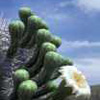
Attention citizen scientists: We need your help watching the way the world changes! For nature, timing is everything. So how does climate change affect the timing of things like flowers blooming and animals migrating, and why is this so important? Learn more, and find out how YOU can help us by observing the world around you from USGS scientist Jake Weltzin, Director of the National Phenology Network. (9:46) |
Transcript/Links | |
Next page

